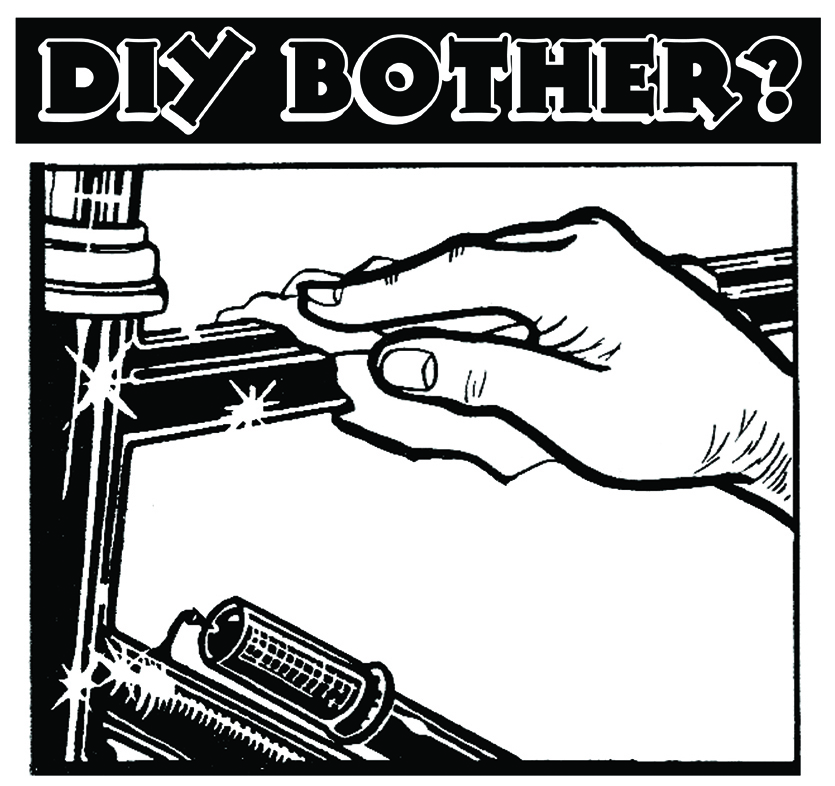
Loath as I am to put forward a definition of DIY in the fear that it might be interpreted as an attempt to fix its meaning, I feel it necessary to write a few words here on the nature of activity that Obscene Baby Auction engages in, supports and with which it shares some affinity. This is particularly pressing in the current context (2011) where ‘DIY’ as a term has, some would have it, been successfully recuperated and co-opted by state and market forces alike (see David Cameron’s ‘Big Society’, the substitution of ‘indie’ for ‘DIY’ in gip-inducing style mags/blogs and so on). For me the term is worth defending and still has some potency but only with a few qualifiers.
When I talk of DIY/self-organised/independent/underground/non-capitalist activity I’m referring to activity done for love not money; that is, not as a means to an end, or a stepping-stone in a project of self-advancement. Rather, I am thinking of a pursuit that is engaged in for the sheer pleasure of doing the thing. It should be quite clear that this activity is a world apart from the entrepreneurial or careerist logic that underpins a lot of so-called DIY endeavours where doing something independently, not-for-profit, or for oneself is understood purely as a necessary first stage on the road to ‘making it’. This latter form of pragmatism (“No-one else is going to do it for me so I’ll make my own destiny”) is the starting point from which a lot of ‘radical’ DIY activity can emerge, but a break with capitalist desires that instigate it is required in order to avoid simply reinforcing the neoliberal, competitive, market-led narrative of our times.
The fact of the matter is that DIY activity when engaged in for its own sake is more fun and more pleasurable than profit-motivated pursuits and opens up a world of possibilities that would normally remain foreclosed. Clearly, playing or enjoying music in ‘autonomous’ spaces and trying to create more inclusive, accessible and ‘authentic’ arenas in which music can be appreciated is not, alone, going to change the world. It can, however, offer a glimpse of an alternative to the individualist, cut-throat, and ultimately alienating and boring world of business-as-usual.
This rupture in the ideology that has been ingrained in those of us that have been through the state education and work system - where we are told that if you are good at or enjoy something then the logical step is to specialise in that field in order to compete to make money from it - is of no small significance but happens all the time, often unrecognised or overlooked. It can happen when a group of friends get together and make food to share freely with one another, or when a collective form a band just to make some noise and hang out together, or when a party is thrown for the hell of it. The list goes on.
The rupture is not exclusively but infinitely more likely to occur in collective experiences of ‘doing together’ and, when taken seriously and shown fidelity to, opens up onto a horizon of new possibilities that infer a total upheaval in the political and economic landscape in which we currently operate. As such, ‘real’ DIY activity is antagonistic to capitalism, not always in the sense that it directly opposes it, but that it does without and creates an alternative within and beyond it, and in so doing challenges capitalism’s purported totalisation or all-pervasiveness.
So, it is my conviction that for all its lifestyle politics and indulgent shortcomings (the fact that it is based in having a good time and is often not just a little cliquey) DIY music is a political project and one worth discussing in such terms. There is a responsibility in the current climate for us to recognise, unpick, complicate, experiment with and progress the radical qualities of DIY activity. The alternative is that it gets swamped in a wave of empty and market-oriented rhetoric and becomes the next in a succession of labels such as ‘rock and roll’, ‘counter culture’,‘punk’ or ‘indie’ to be drained of most if not all of its potency and fed back to us as a consumable and harmless aesthetic to try on and discard next week when tastes change.
In order to resist this age-old cycle of recuperation it is necessary to keep DIY ‘moving’, to not allow it to settle in to a comfortable, congratulatory and uncritical self-perception nor to calcify in tried and tested ‘safe’ spaces, yet at the same time to recognise what is special or unique about it and to defend and build on its assets, to create blockages and manifestations that can resonate with other non-capitalist experiments in fields beyond weird and sometimes noisey rock music. Of utmost importance, though, is to have fun doing it.
Andy Abbott, 2011
Further Reading
Karl Marx – Capital
Raoul Vaneigem – The Revolution of Everyday Life
Hardt and Negri – Commonwealth
Richard JF Day – Gramsci is Dead
John Holloway – Crack Capitalism
The Free Association - Moments of Excess